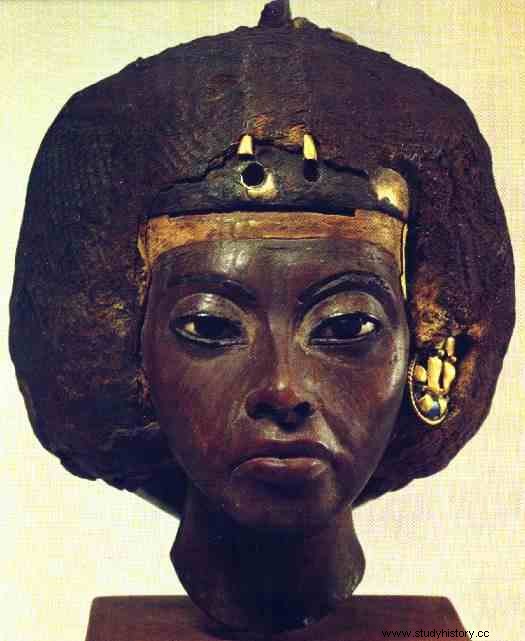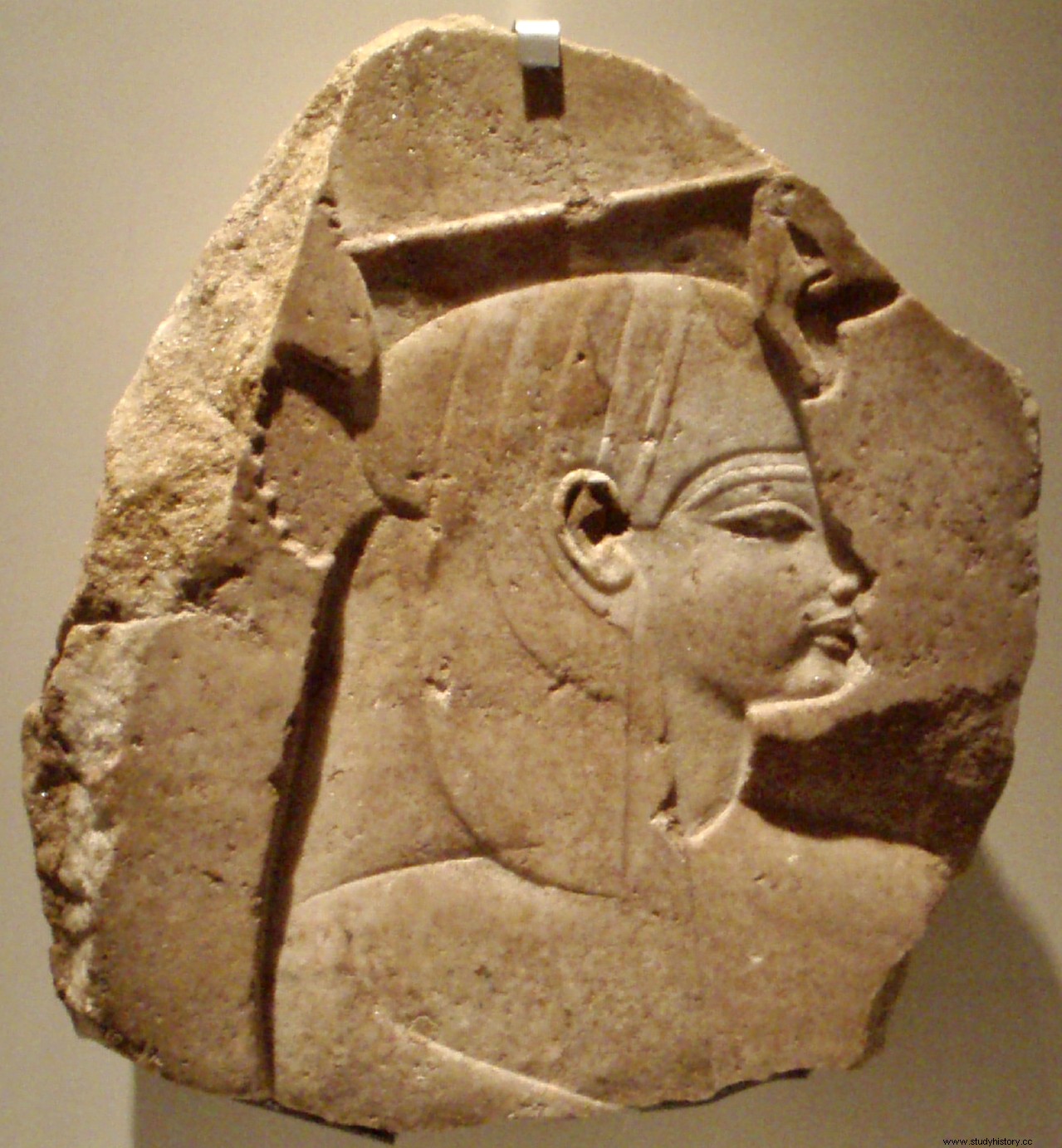Queen of Egypt of the Eighteenth Dynasty, Tiyi fulfills an official role with her husband Amenhotep III; she initiates religious reforms, officiates at ceremonies and leads Egyptian diplomacy when her husband is no longer in a condition to do so .
Great Royal Wife

Born around 1399 BC, Tiyi (or Tiy, Tiye, Teje) came from an aristocratic family of the 18th dynasty and originally from the city of Akhmîm in Upper Egypt. His mother, Touya, is a singer of Hator and Amon", and chief of the musicians in charge of the entertainment of Amon and Min. His father, Yuya, is a wealthy landowner; he bears the titles of Chief of Cavalry and Priest of Min.
Influential, Touya and Youya bond with Pharaoh Thutmose IV then his son, Amenhotep III, who accedes to the throne around -1391/-1390. In -1388 at the latest, Tiyi marries the pharaoh and the marriage is celebrated with great pomp. Commemorative scarabs mention the one who is then still a young girl as "great royal wife" from year 2 [of the reign of Amenhotep]. Together they will have six or seven children, perhaps more:a daughter whose identity is uncertain, Satamon, Iset, Henuttaneb, Nebetâh, Thoutmôsis, the famous pharaoh Akhenaton, Smenkhkare, Baketaton, Kiya.
An influential queen

In the past, other queens of Egypt played an important role, such as Kentkaous II, Neferousobek or Hatshepsut. Tiyi is distinguished by an official and important status of great royal wife. Her husband makes her his adviser and associates her closely with the exercise of power; Tiyi is the first queen to have her name inscribed on official records which mention:"Under the majesty of the King of Upper and Lower Egypt, Amenhotep III and the Great Royal Wife Tiyi I..." . Associated with public events, she even officiates at important ceremonies such as the jubilee of the reign of Amenhotep. The royal statues represent her alongside her husband, as tall as he is.
Armana's letters show Tiyi's important role and influence at court. Earning the respect of foreign dignitaries, she deals directly with them; she takes charge of Egypt's politics and diplomacy when her husband is struck down by illness. At the end of the reign of Amenhotep, Tiyi exercised a de facto regency. After the death of her husband, Tushratta, king of Mitanni (Middle East) wrote to her directly asking her to intercede on his behalf with her son, the new pharaoh Akhenaten.
Like his parents, Akhenaten made his great royal wife, the famous Nefertiti, his equal. Tiyi supports him, and remains influential during his son's reign.
Tiyi died around – 1338, in the year XII of the reign of his son. Recent studies have identified it among the mummies of tomb KV35; Tiyi was buried in the Valley of the Kings, including her husband and one of her daughters.
